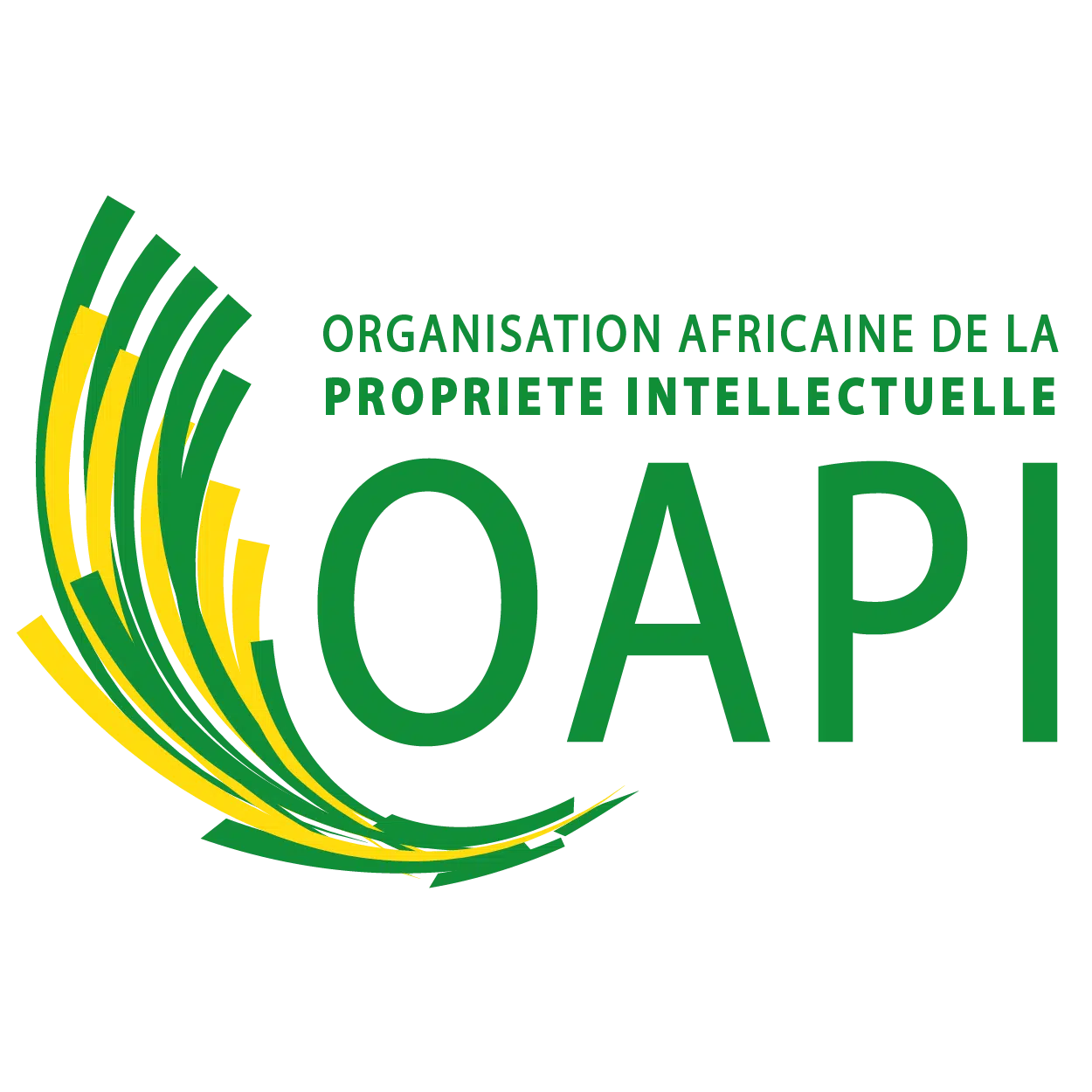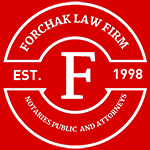
The African Intellectual Property Organization
The African Intellectual Property Organization widely known by its French acronym as “OAPI” was created by the Bangui Agreement of March, 2nd, 1977, and subsequently amended in 1999 is responsible for implementing and applying the common administrative procedures deriving from a uniform system for the protection of industrial property, as well as the provision of international agreements in this field to which the member states of the Organization have acceded, and avoiding services related to industrial property. FORCHAK IP & LEGAL ADVISORY is duly accredited amongst others to practice intellectual property and similar matters as defined hereunder at the OAPI region.
The Organization further seeks to centralize, coordinate, and disseminate information of all kinds relating to the protection of literary and artistic property and it also seeks to promote economic development of its member states notably by means of effective protection of intellectual and related rights.
The Bangui Agreement contains ten (10) Annexes, which is applicable in its entirety to every State that ratifies it.
The Annexes
Patent
Utility models
Trademark and service marks
Industrial designs
Trade names
Geographical indications
Literary and artistic property
Protection against unfair competition
Layout designs (topographies) of integrated circuits
Plant variety protection
Copyrights
IP Watch and monitory services
Member States
The member states of the OAPI moved by the desire to promote the effective contribution of intellectual property to the development of their States and to protect intellectual property rights on their territories in a uniform a manner as possible, undertake to accede the following Treaties and Conventions to wit:
- The Paris Convention for the protection of industrial property of March 20th, 1883, as revised at Stockholm on July 14th 1967;
- The Berne Convention for the protection of Literary and Artistic Works of September 9th, 1886 as amended at Paris on July 24th, 1971 and/or the Universal Copyright Convention as revised at Paris on July 24th 1971;
- The Hague Agreement relating to International Deposit of Industrial Designs of November 6th 1925, as revised at the Hague on November 28th 1960 and at Stockholm on July 14th 1967;
- The Lisbon Agreement for the Protection of Appellation of origin and their international registration of October 31st, 1958, as revised at Stockholm on July 14th, 1967;
- The Convention establishing the World Intellectual Property Organization “WIPO”, signed at Stockholm on July 14th 1967;
- The Patent Convention Treaty (PCT) signed at Washington on June 19th , 1970;
- The Nairobi Treaty on the Protection of the Olympic Symbol of 1981;
- The Budapest Treaty on the international Recognition of Micro-organisms for the purposes of Patent Procedure of 1977;
- The International Convention for the Protection of New Varieties of Plants of December 2nd, 1961, as revised at Geneva on November 10th, 1972, October 23rd, 1978 and March 19th, 1991;
- The Marrakesh Agreement establishing the World Trade Organization, including the Agreement on Trade-related Aspects of Intellectual Property Rights of April 15th, 1994;
- The Trade Registration Treaty signed at Vienna on June 12th, 1973;
- The Rome Convention for the Protection of Performers, Producers of Phonograms and Broadcasting Organizations of 1961;
The OAPI is made up of Seventeen African countries mentioned below and its headquarters is located in Yaounde (Republic of Cameroon) and national liaison offices in each member state. The most significant importance of the Organization to economic investors is that an intellectual property right protected in one country is valid, binding and enforceable in the entire region of its member states namely: :
- The Republic of Benin
- The Republic of Burkina Faso
- The Republic of Cameroon
- The Centrafrican Republic
- The Republic of Congo
- The Republic of Cote d’Ivoire
- The Republic of Equatorial Guinea
- The Republic of Gabon
- The Republic of Guinea
- The Republic of Guinea-Bissau
- The Republic of Mali
- The Islamic Republic of Mauritania
- The Republic of Niger
- The Republic of Senegal
- The Republic of Tchad
- The Republic of Togo
- The Union of Comoros
Therefore in terms of intellectual property practice, the OAPI is considered as a single region. The official languages at the OAPI are English and French. Any document to be admissible at the Registry which is not written in the above languages must be accompanied by a verified translated version in either English or French.
Trademarks
Trademark Registration
Find below the documents required for the filing and registration of a trademark at the OAPI Trademark Office :
Applicant full name;
Applicant detail address;
Eight (08) prints of marks, if any;
A Power of Attorney. Note that for the Power of Attorney to be admissible, it must be signed and dated by the donor, the place of execution must be specifically mentioned, and the title and designation of the signatory must be stated. In case of a company, the company seal should be affixed thereon. No authentication or legalization is required;
Mention of color claims, if any;
Conventional priority claims, if any, by the applicant either original or certified true copies. If the priority documents are not in a language used at the OAPI an accompanied translated version in English or French.
Take notice that there is multi-class system applicable in the OAPI trademark laws wherein an applicant can file for the registration of a trademark in three (03) classes in either product or service class(es) following the 9th edition of the International Nice Agreement. Furthermore, a single application for the registration of a trademark cannot contain both product and service classes at the same time. They are registered differently.
Meanwhile there is a surcharge for each additional class in the same application from the 4th and subsequent class(es).
Trademark Renewals
To renew a registered trademark in the OAPI, applicant must submit the following documents :
- A copy of the registration certificate of the trademark;
- Any proof of change of name, address, assignment recorded during the period of the validity of the trademark;
- An Original Power of Attorney from the proprietors (no legalization or authentication required).
Note that a trademark filed at the OAPI and duly registered is valid for a period of ten (10) years. The validity shall begin to run from the date of filing and not the date of registration. The law enjoins that all applications for renewals must be filed as from the last six (06) months preceding the date of its expiry.
Trademark Recordal of changes
A – Change of Name
- A copy of the Certificate of registration of trademark bearing application number and registration number;
- b) Old Applicant’s name;
- New Applicant’s name;
- Certificate of change of name from the Registrar of Companies (or any authority in charge of corporate affairs) with verified English or French translations (certified copy);
- An original Power of Attorney (no legalization or authentication required).
B – Change of Address:
- A copy of the Certificate of registration of trademark bearing application number and registration number;
- b) Old Applicant’s address;
- c) New Applicant’s address;
- d) An original Power of Attorney (no legalization or authentication required);
C – Assignment recordals
- An original deed of assignment with verified English or French translations;
- A copy of the registration certificate of the trademark;
- Original Powers of Attorney both from the Assignor and Assignee (no legalization or authentication required).
D – Licensing Agreements :
- A notarized license agreement with verified English or French translations;
- A copy of the registration certificate of the trademark;
- Original Powers of Attorney both from the Licensor and the Licensee (no legalization or authentication required).
Patent Registration
The OAPI Convention have ratified the Patent Convention Treaty. Thus an OAPI Regional Phase of a PCT international application will automatically include all member states.
- An application addressed to the Director General (Registrar) of OAPI to be filled by Applicant’s Attorney as in FORM B101 in four (04) copies containing the following information :
– The nature of the invention where protection is sought
– The title of the invention;
– The name(s) of the Applicant (s), detail address and country of residence;
– The name and address of the inventor or inventors as the case may be;
– The date and number of the international application;– The date and number of the international publication;
– In case of separate application, the number and date of the principal application.
- Proof of payment of official fees (filing and publication);
- An original Power of Attorney (no legalization or authentication required);
- A sealed package containing in duplicate:
– a specification of the invention for which the application has been made setting out clearly and succinctly so that a person having ordinary knowledge and skill in the art could carry it out;
– The drawings necessary or useful for the understanding of the invention;
– The claim or claims defining the scope of the protection sought, which shall not go beyond the content of the specification referred to in paragraph 1 above;
– A descriptive abstract summarizing the contents of the specification, the claim or claims referred to in the preceding paragraph and any drawing relevant to the abstract.
- Conventional priority claims, if any, by the applicant either original or certified true copies. If the priority documents are not in a language used at the OAPI an accompanied translated version in English or French. The priority claims must contained a written declaration stating:
– The nature of the title wherein priority is claimed;
– The country of origin where the prior application was filled;
– The name of the applicant(s) claiming priority;
– A certified true copy of the priority documents in the language used at the OAPI.
- Where the invention involves a micro-organism or the use of a micro-organism, a receipt attesting the deposit of a micro-organism, issued by a depositary institution or an international depositary authority specified in the implementing regulations, shall in addition be filed.
The dead line for a regional phase entry of a PCT is 30 months from the priority date.
Nota Bene : An application for the grant of a patent or certificate of addition can be converted into a utility model and vice versa.- An application addressed to the Director General (Registrar) of OAPI to be filled by Applicant’s Attorney as in FORM B101 in four (04) copies containing the following information :
Any application for a patent shall undergo examination at the OAPI Patent Office to ensure that the invention mentioned in the application is not excluded from the protection afforded by the patent, the claim or claims defining the scope of the protection sought does not go beyond the content of the specification and that the application is limited to a single and principal subject with the details that constitute it and the uses specified.
Under the OAPI Patent laws, the applicant can amend the claims, the description, the drawings and the abstract of the application prior to the grant of the patent. Take note that the amendment in each particular case shall not go beyond the disclosure of the invention appearing in the application.
Conversely, the patentee or the grantee of a patent shall during the subsistence of his patent (usually twenty years from the date of filing) have the right to make changes, improvements or additions to the invention upon filing same at the Patent Office. Such changes, improvements or additions are recorded in the same manner as the principal patent which as from the dates of application and grant respectively shall have the same validity as the principal patent.







